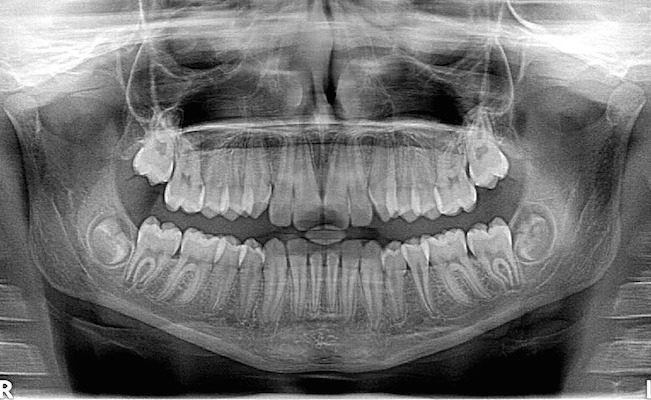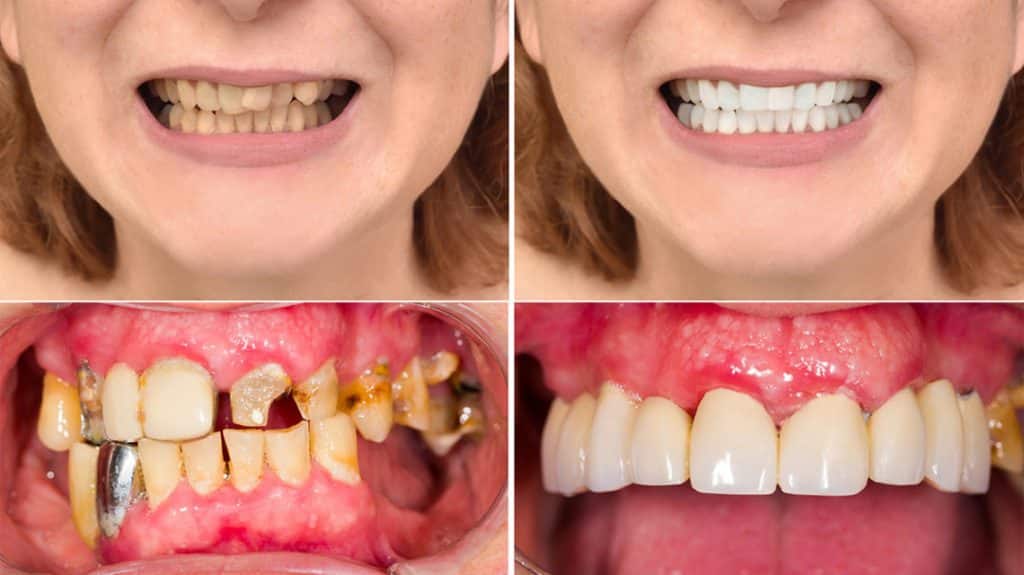Wisdom teeth are called wisdom teeth because they typically erupt during the late teenage years or early twenties, when a person is considered to be gaining wisdom. These third set of molars are the last to come in at the very back of the mouth, pushing through the gum line and potentially causing pain and discomfort.
Normally, people have four wisdom teeth, one in each corner of the mouth. However, it is not uncommon for some individuals to have fewer or even none at all. As our early ancestors had larger jaws that accommodated these teeth, modern humans often face issues related to wisdom tooth impaction, cysts, and overcrowding.
This is why many people end up needing them removed through a surgical procedure known as a wisdom tooth extraction.

Credit: www.amazon.com
The Origins Of Wisdom Teeth: A Historical Perspective
Wisdom teeth have long intrigued people throughout history. Ancient civilizations had varying beliefs about them. Some considered them a sign of maturity and wisdom, while others associated them with the growth of new teeth. The historical perspectives surrounding wisdom teeth are diverse, shaped by the cultural backgrounds of different societies.
Evolutionary theories have also been proposed to explain their purpose. One such theory suggests that our ancestors needed these additional molars for grinding tough, coarse foods. However, as our diets have changed over time, wisdom teeth have become less necessary.
Today, wisdom teeth often cause complications such as impaction and overcrowding, leading to their removal. Despite these challenges, the origins and functions of wisdom teeth continue to fascinate researchers and remain a subject of ongoing study.
The Anatomy Of Wisdom Teeth: Unveiling The Enigma
Also known as third molars, wisdom teeth are often a subject of intrigue. These teeth typically emerge between the ages of 17 and 25, when individuals are believed to gain a certain level of wisdom, hence the name “wisdom teeth.
” Their location sets them apart, nestled at the back of the mouth. However, the structure can vary among individuals, as some may have all four wisdom teeth, while others may have fewer or none at all. Impacted wisdom teeth occur when there is insufficient space for their emergence, leading to potential complications such as pain and infection.
Moreover, they can cause misalignment of surrounding teeth and damage to nearby structures. It’s important to understand the risks associated with wisdom teeth and consult with a dental professional for guidance on their management.
Wisdom Teeth Removal: Understanding The Need
Wisdom teeth, also known as third molars, acquire their peculiar name due to their late development during young adulthood. These teeth are believed to represent the culmination of one’s wisdom and maturity. However, the reality is quite different. Wisdom teeth often pose various oral health problems, making their removal necessary in many cases.
The reasons for removal can include overcrowding in the mouth, impaction, or the development of cysts. Signs that indicate the need for extraction may include pain, infection, gum inflammation, or damage to adjacent teeth. While removing wisdom teeth can be beneficial for oral health, there are also pros and cons to consider.
On the positive side, removal can prevent future dental complications. Conversely, the procedure may involve risks such as nerve damage or infection.
Surgical Procedures: Unraveling The Mystery
Wisdom teeth, also known as third molars, earned their unique moniker due to their late arrival. Theories suggest that they are called “wisdom teeth” because they typically erupt during the late teens or early twenties when a person is said to have gained some wisdom.
When it comes to their extraction, various surgical techniques are employed. Local anesthesia is commonly used to numb the area, while general anesthesia may be employed for more complex cases. Recovery after wisdom teeth removal involves some aftercare tips. It’s important to follow the dentist’s instructions, including eating soft foods, avoiding physical exertion, and keeping the oral cavity clean to prevent infections and facilitate healing.
By understanding the mystery behind wisdom teeth and the surgical procedures involved, patients can make informed decisions for their oral health.
Alternative Approaches: Exploring The Options
Wisdom teeth, also known as third molars, have earned their name due to the age at which they typically erupt, often during one’s late teens or early twenties. Many believe this timing coincides with a person gaining more wisdom, hence the designation.
However, it is worth exploring alternative approaches for managing wisdom teeth, especially non-surgical options. Holistic approaches aim to alleviate wisdom teeth problems by integrating natural remedies and practices. These methods can include herbal remedies, acupuncture, and chiropractic treatments. While alternative approaches can offer benefits such as avoiding surgery and minimizing pain, they do have limitations.
The success of non-surgical treatments depends on factors such as the severity of the wisdom teeth’s impact and individual differences in response. It is essential to consult with a dental professional to evaluate the best course of action for managing wisdom teeth effectively.
The Curiosity Behind The Name: Wisdom Teeth Explanations
Wisdom teeth earned their name from cultural and folkloric explanations. These teeth, also known as third molars, typically emerge during the late teenage years or early adulthood. Their appearance is often associated with reaching maturity and entering adulthood. One prevalent theory for the term “wisdom teeth” is that they reflect the idea that by the time these teeth erupt, individuals have gained some wisdom and life experience.
Another theory suggests that the name derives from the fact that these teeth appear much later in life compared to other permanent teeth. While there may be differing explanations for the name, the presence of wisdom teeth is a common occurrence that brings with it a fascinating curiosity.
Frequently Asked Questions On Why Are Wisdom Teeth Called Wisdom Teeth
Why Do We Have Wisdom Teeth?
Wisdom teeth are thought to be remnants of our evolutionary past when our ancestors had larger jaws and relied on a tough, fibrous diet. Nowadays, our jaws have become smaller, and there is often insufficient space for these additional teeth to erupt properly, leading to various dental issues.
When Do Wisdom Teeth Usually Come In?
Wisdom teeth typically start to come in between the ages of 17 and 25. This is known as the “age of wisdom” since it’s when people become adults and gain knowledge. However, the eruption of wisdom teeth can vary from person to person, with some experiencing earlier or later development.
Why Are Wisdom Teeth Called Wisdom Teeth?
Wisdom teeth are called wisdom teeth due to the age at which they typically erupt, which is associated with gaining wisdom and maturity. Also known as the third molars, their arrival is often seen as a rite of passage into adulthood.
Do All People Have Wisdom Teeth?
Not everyone has wisdom teeth. Evolution has resulted in varying jaw sizes, with some individuals having sufficient space for these additional molars while others do not. Therefore, it is possible for some people to have all four wisdom teeth, some to have fewer, and others to be completely absent.
Should I Have My Wisdom Teeth Removed?
Removal of wisdom teeth is often recommended by dentists, even if they are not causing any immediate problems. This is because wisdom teeth can become impacted, cause crowding, lead to the misalignment of existing teeth, and increase the risk of gum disease and tooth decay.
It is best to consult with your dentist for personalized advice.
Conclusion
The name “wisdom teeth” may seem intriguing, but its origins lie in the age at which these teeth typically emerge. These third molars usually appear between the ages of 17 and 25, a time when individuals are transitioning into adulthood and gaining wisdom through life experiences.
While wisdom teeth serve a purpose in our ancestors’ diets, modern advancements and changes in eating habits have rendered them less essential. As a result, wisdom teeth often pose issues such as overcrowding, impaction, and misalignment within our mouths. Consequently, most dentists recommend their removal to avoid potential dental complications.
Understanding the history and purpose of wisdom teeth provides insight into their significance and why they are named as such. By keeping this knowledge in mind, individuals can make informed decisions about the care and management of their oral health.








